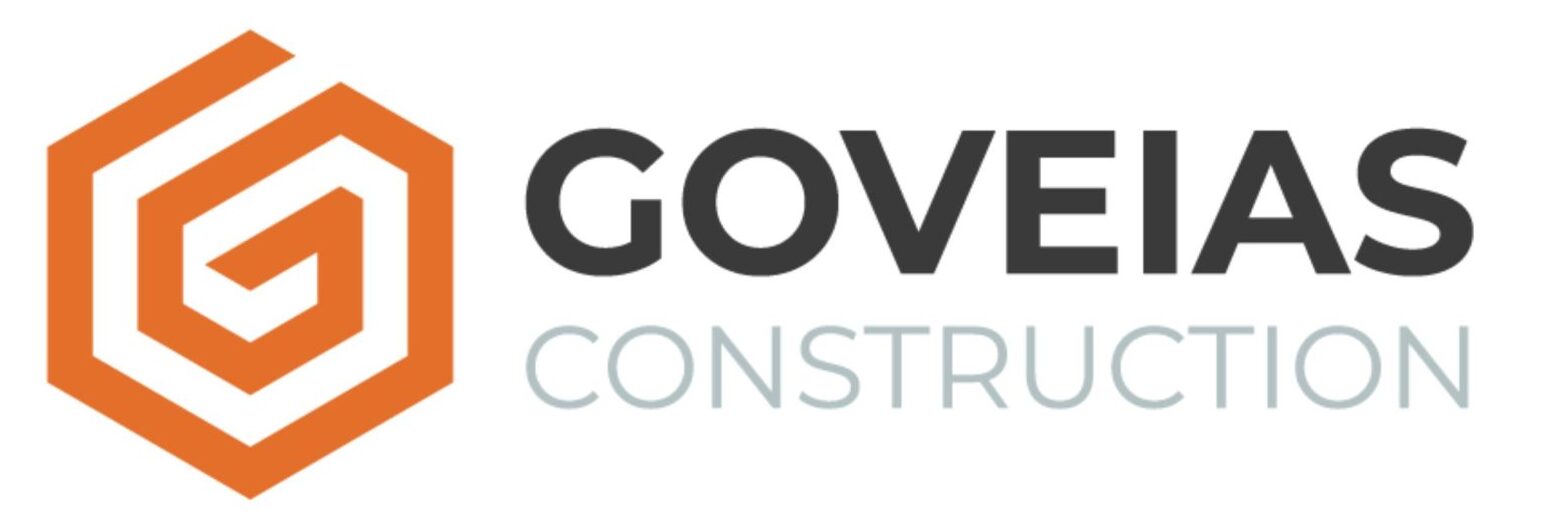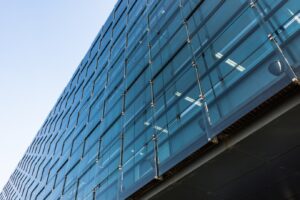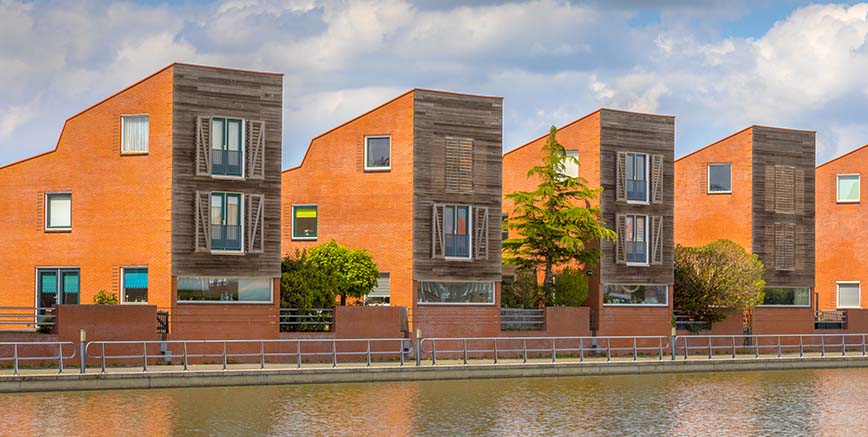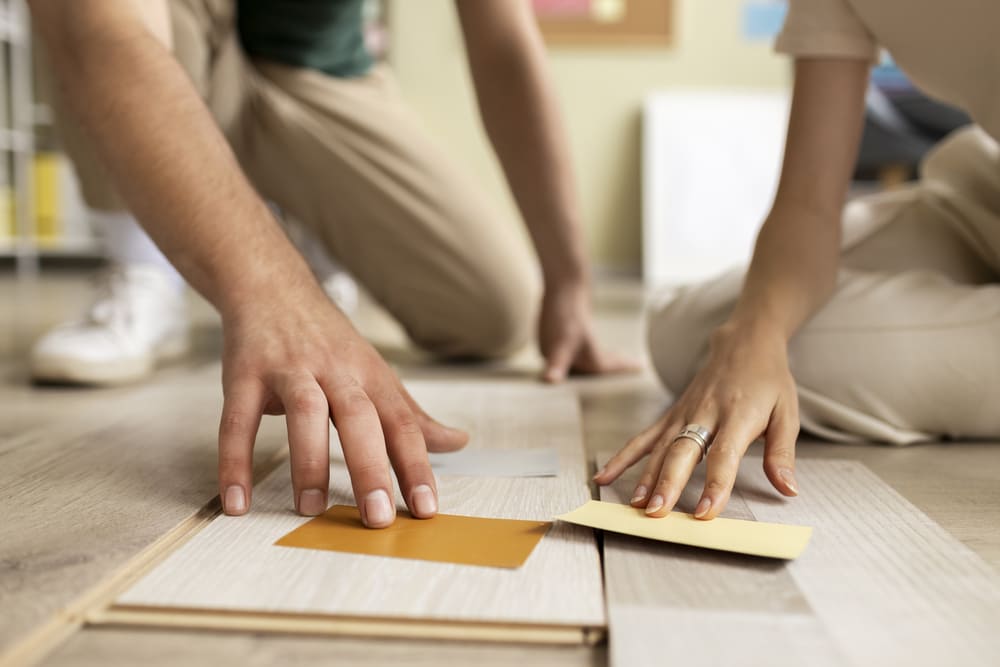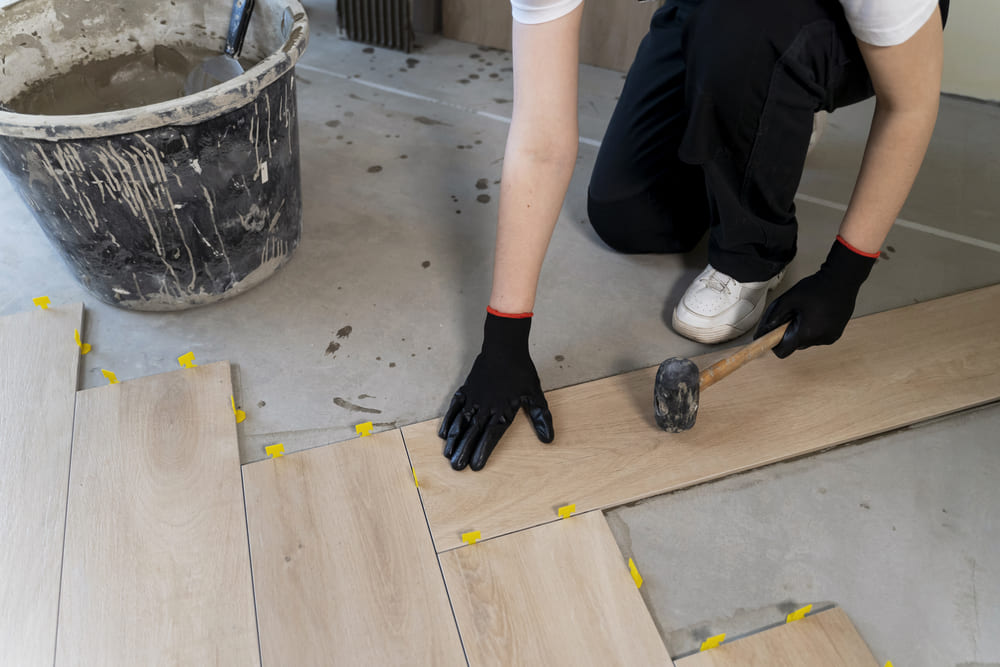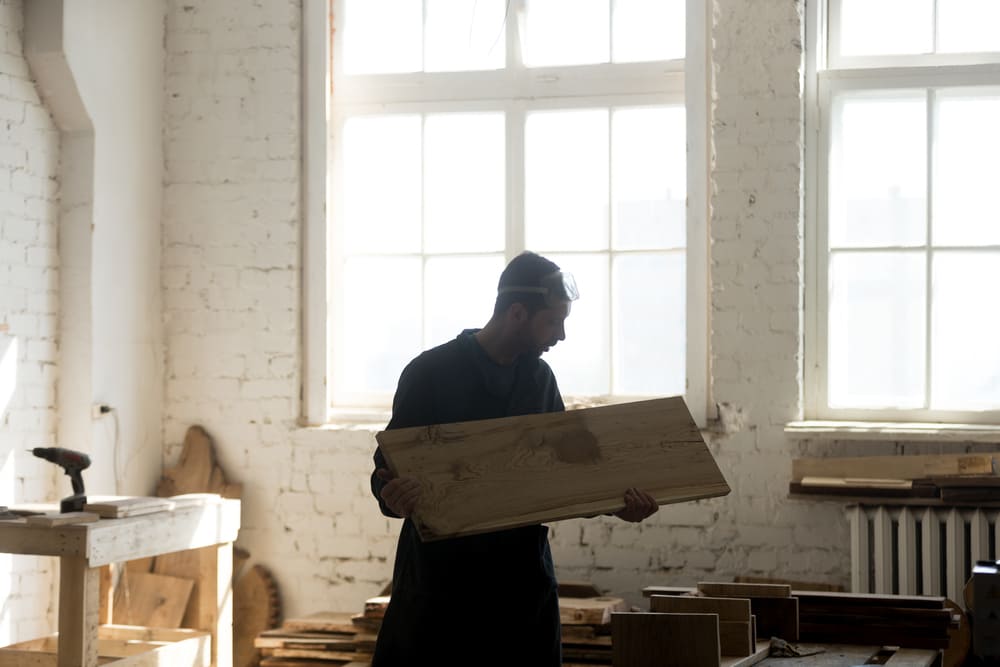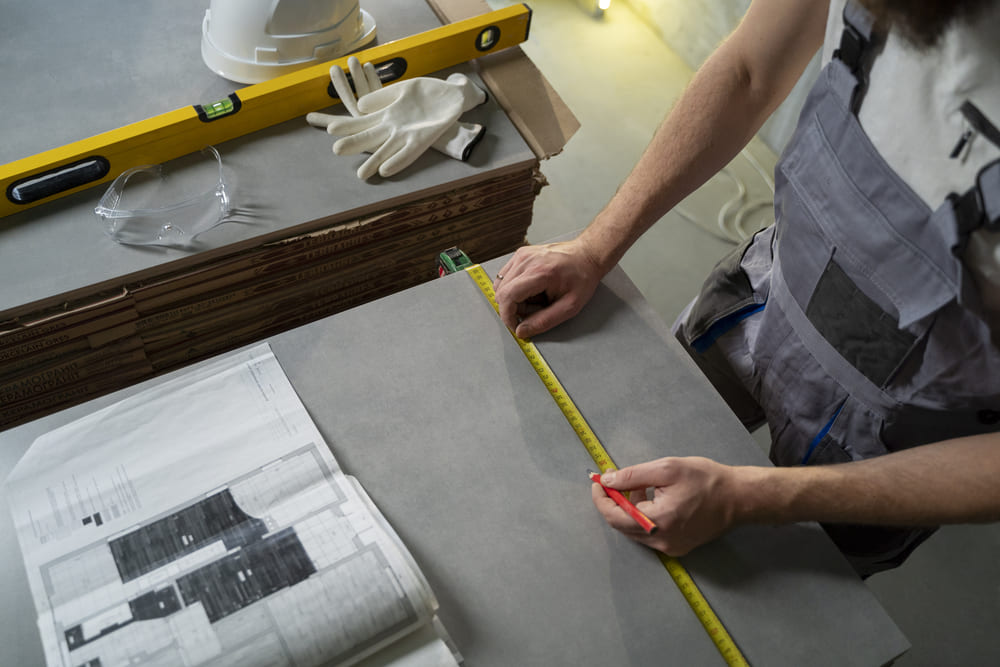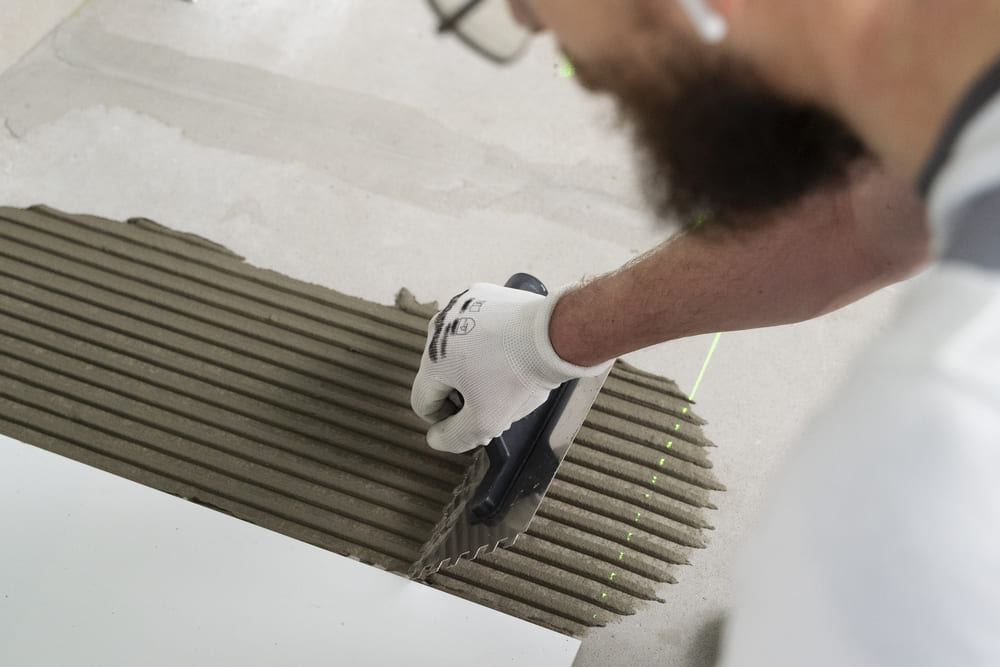Top Flooring Types for Home Expansions

When planning a home expansion, selecting the right flooring is an important decision that can greatly influence your space’s aesthetics, functionality, and value
At Goveias, we understand the importance of choosing the perfect flooring type to complement your new area while meeting your lifestyle needs.
In this post, we’ll explore the top flooring types for home expansions, ensuring your project stands the test of time and is completely aligned with your vision!
Introduction to Flooring Types for Residential Expansions
Choosing the right flooring for your home expansion involves understanding the various options available and how they fit your specific needs.
Different types of flooring offer unique benefits and drawbacks, affecting your space’s overall feel and usability. Here, we break down the top flooring types to help you make an informed decision. Check it out:
1. Hardwood Flooring
Hardwood flooring remains a popular choice for home expansions due to its timeless appeal and durability.
It adds elegance to any room and can significantly boost your home’s resale value. Hardwood floors come in various wood species, each offering unique grain patterns and colors, allowing you to customize your space.
Advantages
- Aesthetic Appeal: Hardwood flooring offers a warm, natural look that complements various interior styles, enhancing the overall ambiance of your home;
- Durability: Known for its longevity, hardwood flooring can last for decades with proper care, making it a worthwhile investment;
- Resale Value: Hardwood floors are highly sought after in the real estate market, increasing your home’s value and appeal to potential buyers.
Disadvantages:
- Cost: Hardwood flooring tends to be more expensive than other options, both in terms of materials and installation;
- Maintenance: It requires regular maintenance, including refinishing and polishing, to keep it looking its best.
2. Engineered Wood Flooring
Engineered wood flooring is an excellent choice for those who desire the look of hardwood but with added stability.
This flooring type consists of a top layer of natural wood veneer adhered to multiple layers of plywood or high-density fiberboard.
Advantages:
- Stability: Engineered wood is less prone to warping and moisture damage, making it suitable for areas with fluctuating humidity levels.
- Aesthetic Versatility: Available in a wide range of finishes and wood types, engineered wood flooring allows for extensive customization to match your interior design.
- Installation Flexibility: This flooring can be installed over various subfloors, including concrete, providing more installation options for your home expansion.
Disadvantages:
- Repair Complexity: It is more challenging to repair than solid hardwood; if damaged, it may require replacing entire sections.
- Lifespan: Generally, it may not last as long as solid hardwood but still offers impressive durability.
3. Luxury Vinyl Plank (LVP)

Luxury vinyl plank (LVP) is a versatile, cost-effective flooring type ideal for home expansions. It mimics the appearance of natural wood or stone but offers enhanced durability and water resistance.
Advantages:
- Water Resistance: LVP is highly resistant to water, making it perfect for moisture-prone areas like basements, kitchens, and bathrooms;
- Durability: It is also resistant to scratches, and stains, ensuring that your flooring maintains its appearance even in high-traffic areas;
- Cost-Effective: LVP provides the look of high-end materials at a fraction of the cost, making it a budget-friendly option without sacrificing style.
Disadvantages:
- Feel: Does not have the same natural feel as real wood or stone;
- Environmental Impact: Made from synthetic materials, which may not be as eco-friendly as natural options.
4. Laminate Flooring
Laminate flooring is another budget-friendly option that offers durability and a wide range of design choices. It consists of a photographic layer replicating the look of wood or stone, topped with a clear protective layer.
Advantages:
- Affordability: Laminate flooring is more economical compared to hardwood and engineered wood, making it an excellent choice for cost-conscious homeowners;
- Durability: It is resistant to scratches, moisture, and fading, ensuring long-lasting beauty with minimal upkeep;
- Easy Installation: Often featuring a click-lock system, laminate flooring is straightforward to install, which can save time and reduce installation costs.
Disadvantages:
- Feel: Can feel less authentic underfoot compared to natural materials;
- Repair Issues: Once damaged, it is often difficult to repair and may require replacing entire planks.
5. Ceramic and Porcelain Tile
Ceramic and porcelain tiles are excellent choices for durable and water-resistant flooring. They come in various designs, colors, and textures, making them suitable for various home expansion projects.
Advantages:
- Durability: Both ceramic and porcelain tiles are highly resistant to wear and moisture, making them ideal for high-traffic and wet areas;
- Aesthetic Variety: Available in numerous styles and patterns, tiles offer endless design possibilities to suit any decor;
- Low Maintenance: Tiles are easy to clean and maintain, ensuring that they retain their beauty with minimal effort;
Disadvantages:
- Cold and Hard: Can feel cold underfoot and may be uncomfortable to stand on for long periods;
- Installation Cost: Requires professional installation, which can be costly and time-consuming.
6. Carpet
Carpet remains a cozy and comfortable option for home expansions, especially in bedrooms and living areas. Modern carpets come in a variety of materials and styles, providing softness and warmth underfoot.
Advantages:
- Comfort: Carpet provides a soft, cushioned feel, making it comfortable to walk on and ideal for creating a cozy atmosphere.
- Insulation: It offers excellent thermal and acoustic insulation, helping to keep your home warm and quiet.
- Variety: Available in numerous colors, patterns, and textures, carpet allows for extensive customization to match your interior decor.
Disadvantages:
- Maintenance: Requires regular cleaning to prevent dirt and stains, and may need professional cleaning for deep stains.
- Durability: Less durable in high-traffic areas compared to hard flooring options and can show wear and tear more quickly.
7. Bamboo Flooring
Bamboo flooring is an eco-friendly option that offers the look and feel of hardwood but is more sustainable. It is made from fast-growing bamboo plants, making it a green choice for environmentally conscious homeowners.
Advantages:
- Sustainability: Bamboo is a renewable resource, making it an environmentally friendly flooring option.
- Durability: Comparable to hardwood in terms of strength and longevity, bamboo flooring is designed to last.
- Aesthetic Appeal: Bamboo provides a natural style that adds a great look to any space.
Disadvantages:
- Moisture Sensitivity: Can be susceptible to moisture damage if not properly sealed.
- Limited Color Options: Fewer color choices compared to traditional hardwood, which may limit design flexibility.
Choosing the Right Flooring for Each Room
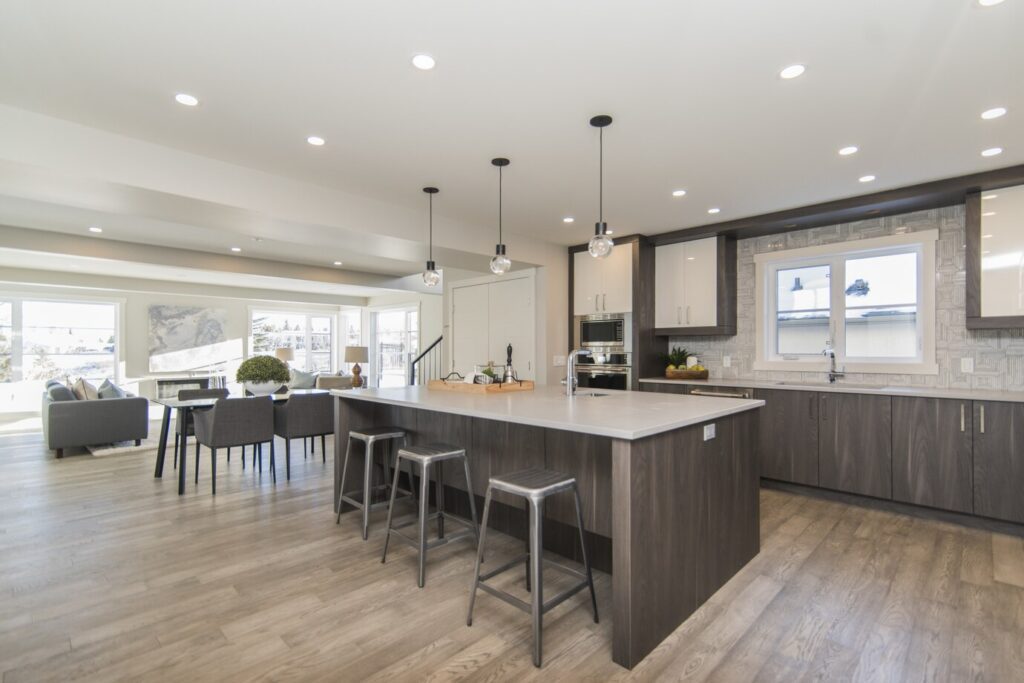
When selecting the right flooring type for your home expansion, consider the following factors:
1. Room Usage
Different rooms have different needs. For instance, kitchens and bathrooms require water-resistant flooring, while bedrooms and living rooms may benefit from the comfort of carpet or hardwood.
2. Budget
Determine your budget early on to narrow down your options. While hardwood and tile may be more expensive, laminate and LVP offer cost-effective alternatives without sacrificing style.
3. Maintenance
Consider the level of maintenance you’re willing to commit to. Hardwood and carpet require more upkeep, whereas tile and vinyl are low-maintenance options.
4. Aesthetic Preferences
Choose a flooring type that complements your home’s existing design and enhances the overall aesthetic of your new space.
5. Durability
Select a flooring type that can withstand the expected foot traffic and room usage. Durable flooring options like tile, engineered wood, and LVP are ideal for high-traffic areas.
Examples of Goveias Construction Projects
At Goveias, we’ve worked on numerous incredible home expansion projects, each with unique flooring needs and aesthetic goals. Here are a few examples:
Project 1: Elegant Expansion with Hardwood Flooring

For one of our clients, we recommended and installed oak hardwood flooring. The result was a stunning, warm, inviting space that added significant value to their home.
Project 2: Modern Upgrade with Luxury Vinyl Plank

A modern living room expansion requires durable and stylish flooring. We opted for luxury vinyl plank (LVP), offering the appearance of natural wood while being easy to maintain and resistant to furniture.
Conclusion
Goveias takes pride in delivering high-quality construction projects. Contact us today to discuss your home expansion flooring options and let our team of experts guide you in making the best choice for your space.
Ready to start your home expansion? Contact Goveias now for a consultation and take the first step towards creating your dream space!
